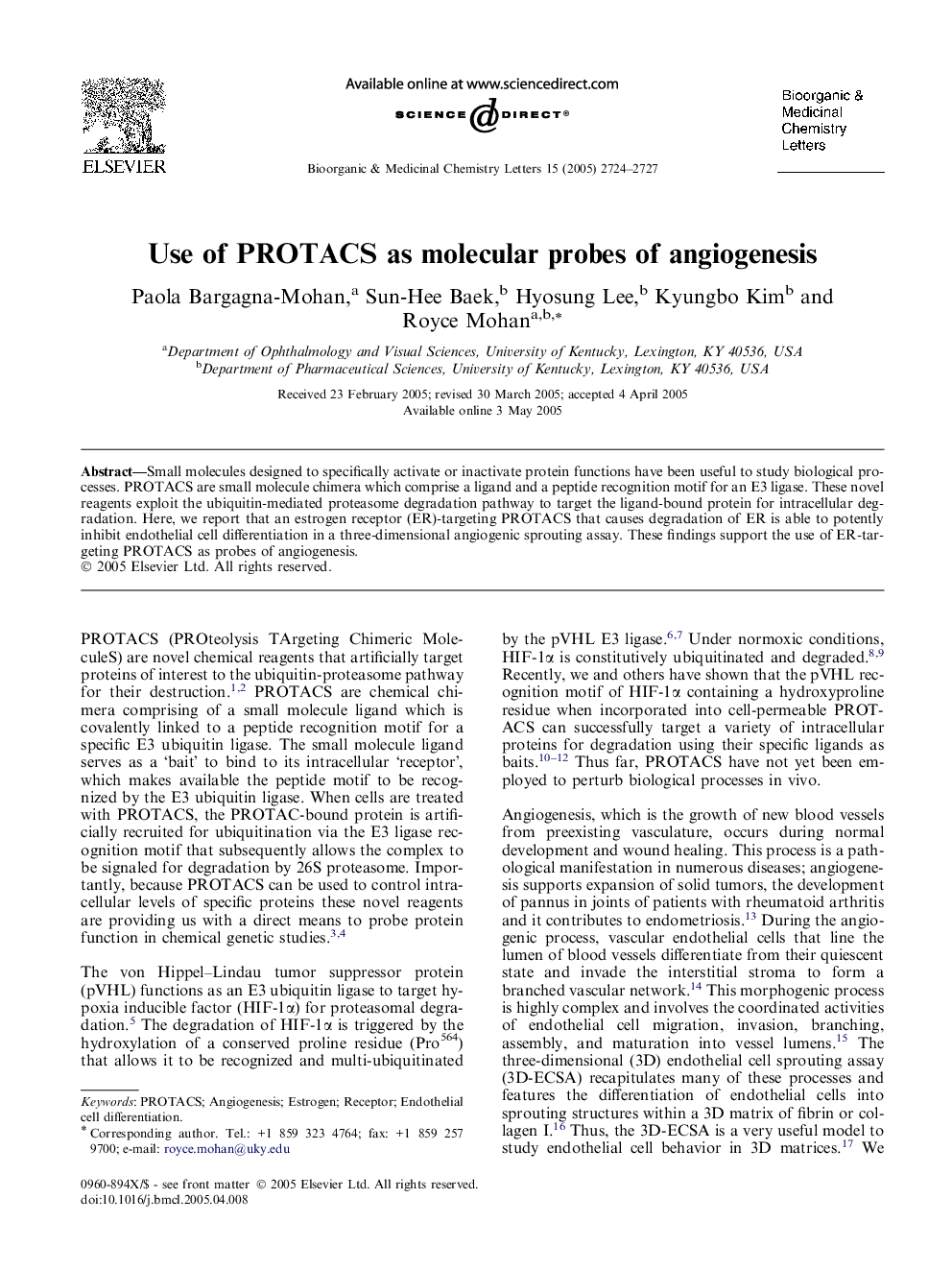| Article ID | Journal | Published Year | Pages | File Type |
|---|---|---|---|---|
| 1375979 | Bioorganic & Medicinal Chemistry Letters | 2005 | 4 Pages |
Small molecules designed to specifically activate or inactivate protein functions have been useful to study biological processes. PROTACS are small molecule chimera which comprise a ligand and a peptide recognition motif for an E3 ligase. These novel reagents exploit the ubiquitin-mediated proteasome degradation pathway to target the ligand-bound protein for intracellular degradation. Here, we report that an estrogen receptor (ER)-targeting PROTACS that causes degradation of ER is able to potently inhibit endothelial cell differentiation in a three-dimensional angiogenic sprouting assay. These findings support the use of ER-targeting PROTACS as probes of angiogenesis.
Graphical abstractE2-penta is an estradiol-peptide chemical chimera (ER-PROTAC) that binds to the estrogen receptor and targets it for proteolysis via the ubiquitin-mediated proteasome pathway. We show that E2-penta is a novel chemical genetic probe of angiogenesis as it blocks differentiation of vascular endothelial cells and potently inhibits angiogenic sprouting in vivo.Figure optionsDownload full-size imageDownload as PowerPoint slide
